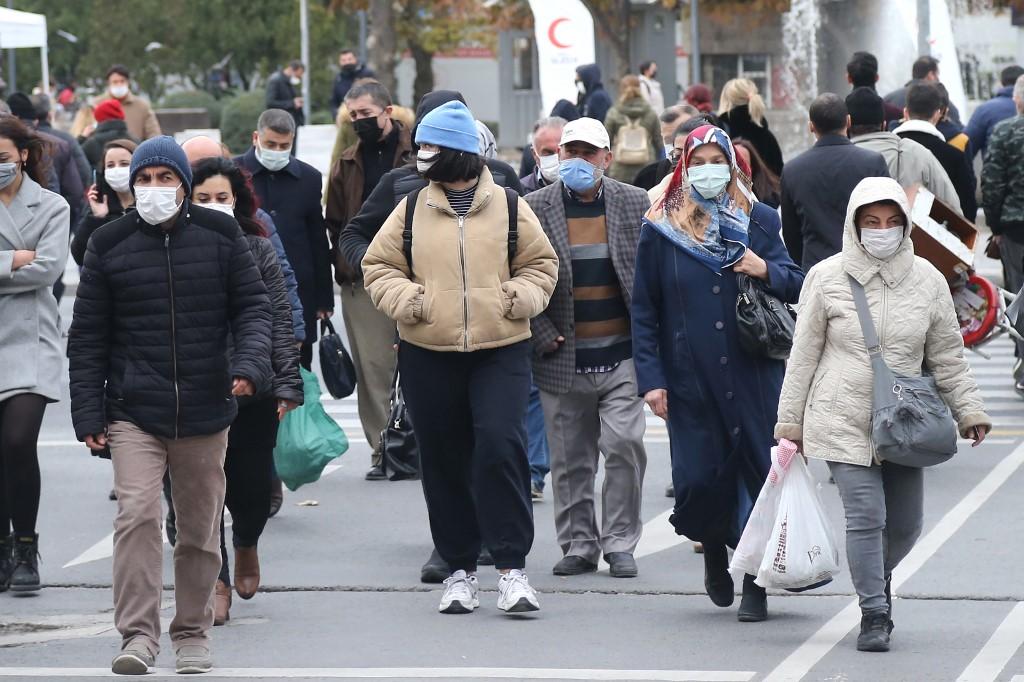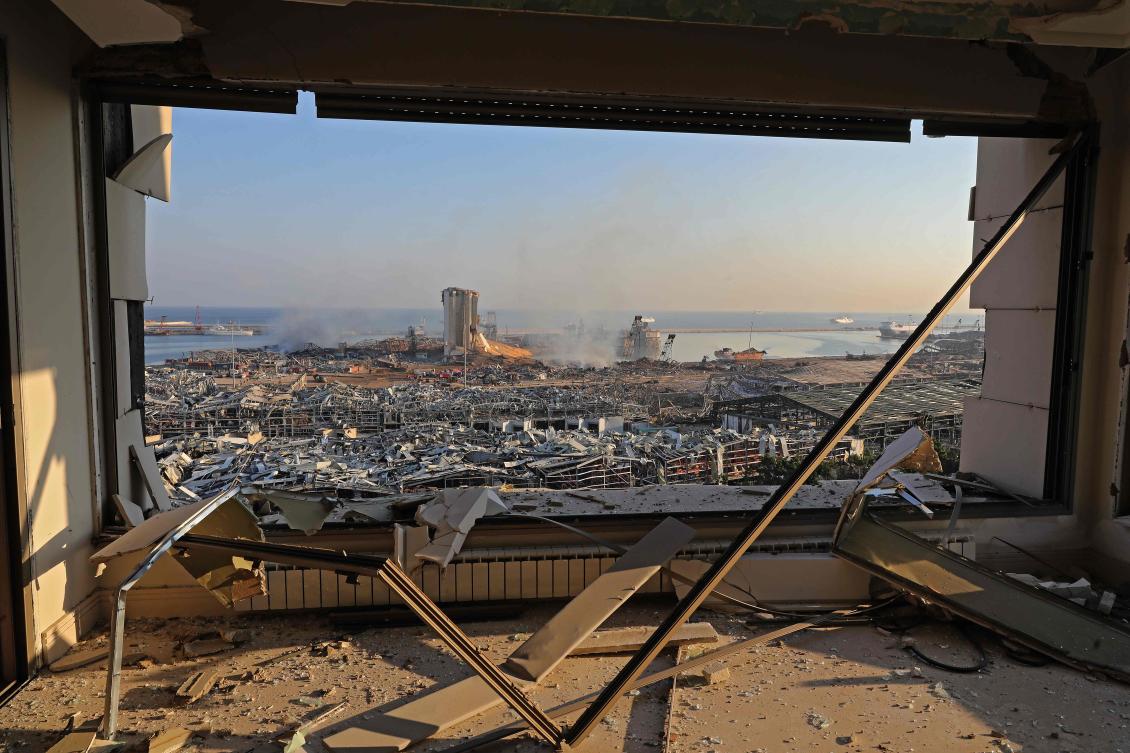Events in Beirut expose public distrust of Lebanese authorities
BEIRUT: Two events in 24 hours in Beirut this week highlighted the troubled state of Lebanon. On Wednesday evening, members of the Internal Security Forces assaulted a lawyer who had violated lockdown rules, while on Thursday afternoon families of the victims of August’s Beirut Port explosion took to the streets again to protest the judiciary’s handling of the investigation into the disaster that left 202 people dead and around 6,500 wounded.
The lawyer Rachid Derbas, an activist and former minister, told Arab News: “These are signs of the state’s rupture. We expected the judiciary and security to be the last systems to collapse in Lebanon, but they clearly weren’t.”
The families of the port explosion’s victims demanded that those responsible for the explosion be “hanged in nooses.” They proceeded to the house of Judge Fadi Sawan, who is in charge of the investigation but has yet to issue any reports explaining how the incident occurred, although he has asked parliament to investigate some ministers.
The protestors raised banners saying, “We will not remain silent anymore,” and stating that they will not accept “a ruling of negligence or misadventure.” They carried pictures of various prime ministers and other ministers who have held office since 2013, when ammonium nitrate is believed to first have been stored at the port.
They also demanded “bold decisions and the prosecution of all administrative, political and security officials, regardless of their status,” adding that they believe the crime was not a result of negligence, but was “committed intentionally.”
In a statement, the victims’ families said: “A judge becomes an accomplice to a crime when he covers (for) the main perpetrators and manipulates the causes of the crime by ridiculing it and ruling it as negligence. We will not settle for the conviction of junior officials. Senior officials must be punished as well, regardless of their position in the state.”
Derbas criticized Sawan for “resorting to parliament to request the prosecution of current and former ministers for failing to deal with the storage of thousands of tons of ammonium nitrate in the port.”
While Derbas expressed his fear of politicizing the issue, he said he believes that the investigation requires “a large workshop of experts and specialized cadres, for one person cannot do this job on their own.”
Meanwhile, the arrest of lawyer Afram Al-Halabi on Wednesday — for violating the odd and even license plate ruling which allows people to drive on alternate days, depending on their license plate number — sparked anger from some, including the Beirut Bar Association, which condemned the violence of the security forces who made the arrest. Al-Halabi was reportedly thrown to the ground and knelt on before being handcuffed and taken to a police station.
Secretary-General of the Beirut Bar Association Saadeddine Al-Khatib, told Arab News: “We filed a criminal complaint in the name of the bar and the lawyer Al-Halabi, because the violence inflicted on him could have led to his death. He did not utter a word during his exposure to unjustified violence. Lawyers have the right to work during lockdown, for military courts are still operating, which requires the presence of lawyers to file complaints or secure releases. This violence is unacceptable, whether inflicted on lawyers or any ordinary citizen. As unionists, we took a stand. We will not communicate with the Interior Ministry. We have adopted legal procedures instead.”
“Whoever is leading the ship in this country is not concerned with human lives or saving people. He is only interested in himself and is subject to foreign policies,” Derbas told Arab News. “When choosing between bad and worse, he chooses the worst.
“This country is not a place to protect foreign interests. It is not a barracks or a platform. Hezbollah cannot keep the country hostage to Iran’s strategy,” he continued. “If a lawyer becomes subject to the mood of the military and the judge, then this system that is leading our country’s ship is not worthy of even riding a bike.”

France to arrange aid conference for Lebanon by video on Dec. 2Charges filed against customs officials over Lebanon port blast



